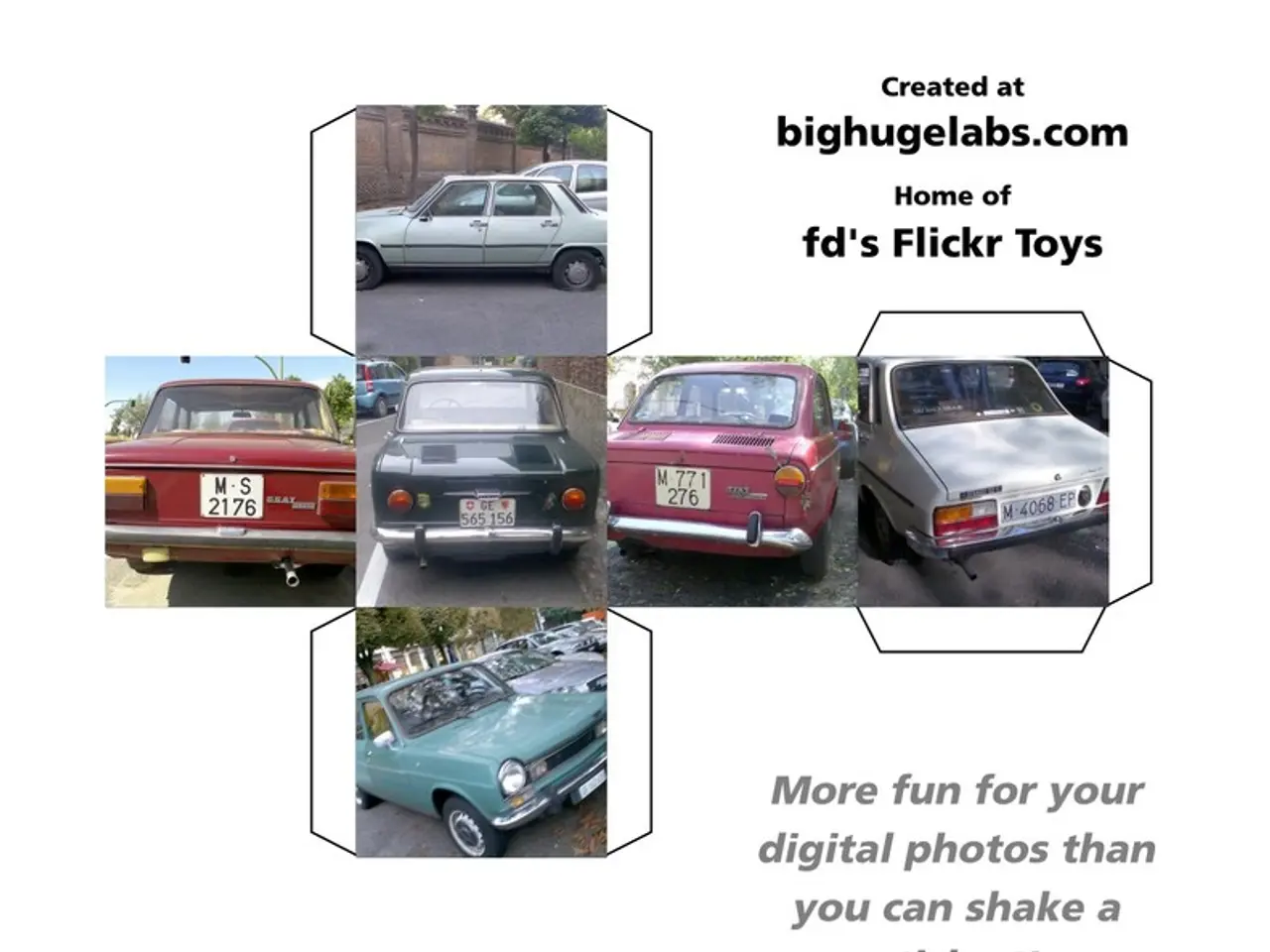Car sales for passenger vehicles witness a 22% increase year-over-year in July, but drop by 60% compared to the previous month.
Pakistan Auto Sales Show Robust Growth in July 2025
The auto industry in Pakistan experienced a significant boost in July 2025, with a 22% year-on-year (YoY) increase in sales. This growth can be attributed to a more stable macroeconomic environment, lower interest rates, and easing inflation, which have collectively improved consumer sentiment[1][3].
In the passenger car segment, sales by Pakistan Automotive Manufacturers Association (PAMA) members reached 7,135 units[2]. The 1,300cc and above vehicle segment saw a remarkable 74% YoY sales increase, and there was also growth in mid-size cars, bolstering overall passenger car sales[3][4].
New car models, including hybrid and plug-in hybrid variants, played a crucial role in maintaining consumer interest and demand in the market[1]. The launch of the new HAVAL facelift supported sales at Sazgar Engineering, with further growth expected from August onwards following the introduction of the H6 PHEV variant[1].
However, passenger car sales dropped significantly on a month-on-month (MoM) basis, declining around 60% from June, largely due to a high base effect from June's pre-budget buying surge ahead of new vehicle tax hikes and EV adoption levies[1][3][4][5].
Truck and bus sales also saw an increase, with 374 units sold in July 2025[2]. On the other hand, sales of jeeps and pick-ups rose to 3,899 units, while tractor sales decreased to 1,195 units[2].
In the two/three-wheeler segment, sales rose 44% YoY but fell 12% MoM to 122,441 units in July 2025. Electric motorcycles and three-wheelers accounted for 542 units of the total sales[2].
Several auto manufacturers reported growth in their sales. Hyundai Nishat's sales grew 2.1x YoY but fell 16% MoM to 1,225 units, with the Tucson and Elantra recording 5x and 4x YoY increases, respectively[1]. Indus Motor Company (INDU) recorded a 2x YoY increase in sales but a 9.0% MoM decline to 3,337 units[1]. Honda Atlas Cars (HCAR) recorded a 61% YoY increase but a 17% MoM decline to 1,500 units[1]. Pak Suzuki Motor Company (PSMC) posted an 18% YoY increase and a 72% MoM decline[1]. Dewan's Honri-Ve recorded sales of 24 units in July 2025[1].
The figures for Road Prince are still awaited and could add around 2,000 units to the total two/three-wheeler sales[2]. The fall at Sazgar Engineering was due to strong June sales from pre-buying on fears of additional duties[1].
In conclusion, the auto industry in Pakistan is showing signs of recovery, with the primary drivers being easier financing, macroeconomic stability, new vehicle offerings, and positive consumer sentiment. However, the industry still faces challenges, particularly in the tractor and passenger car segments, where sales have decreased and shown a significant MoM decline, respectively.
[1] The Express Tribune. (2025). Auto sales up 22% YoY in July 2025. Retrieved from https://tribune.com.pk/business/auto-sales-up-22-yoy-in-july-2025 [2] ProPakistani. (2025). Auto sales up 22% YoY in July 2025. Retrieved from https://propakistani.pk/2025/08/01/auto-sales-up-22-yoy-in-july-2025/ [3] Dawn. (2025). Auto sales up 22% YoY in July 2025. Retrieved from https://www.dawn.com/business/auto-sales-up-22-yoy-in-july-2025 [4] Business Recorder. (2025). Auto sales up 22% YoY in July 2025. Retrieved from https://www.brecorder.com/business-and-economy/auto-sales-up-22-yoy-in-july-2025/ [5] Pakistan Today. (2025). Auto sales up 22% YoY in July 2025. Retrieved from https://pakistantoday.com.pk/2025/08/01/auto-sales-up-22-yoy-in-july-2025/
- The robust growth in the automotive sector, as seen in Pakistan's auto sales in July 2025, might be a positive sign for the broader environmental impact, as increased vehicle sales could lead to higher carbon emissions.
- The upward trend in both automotive sales and weather news in Pakistan could be an indication of a more substantial economy, as a healthy auto industry often correlates with a stronger overall economy and potentially provides more accurate weather predictions through such industries as automotive technology.




